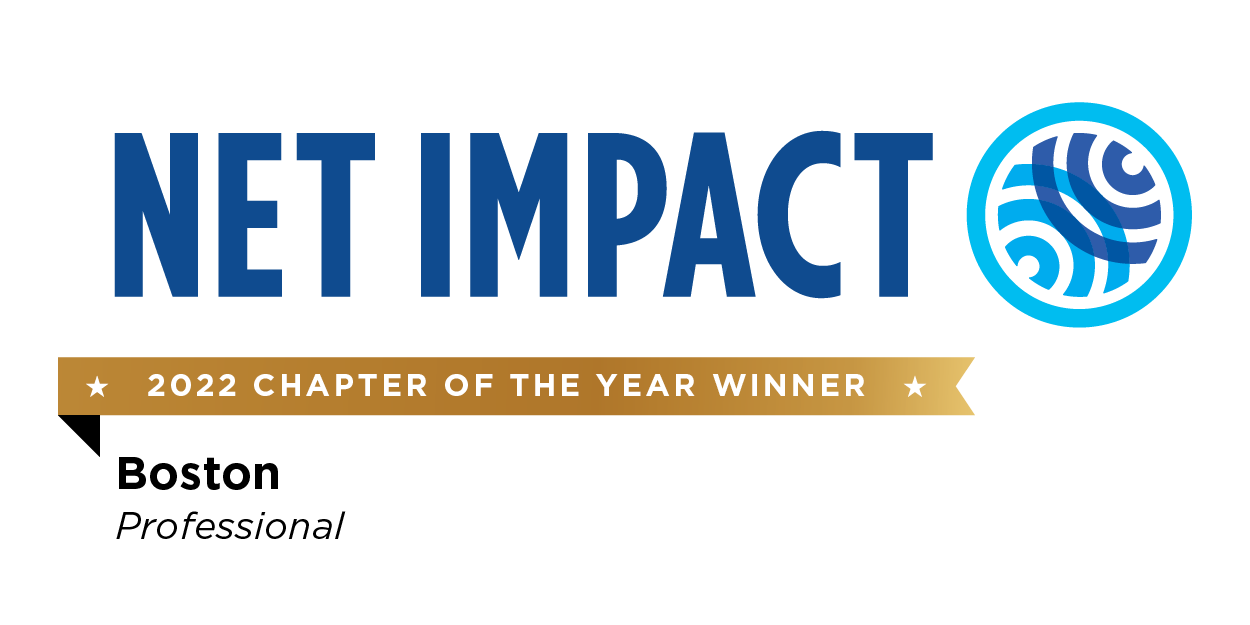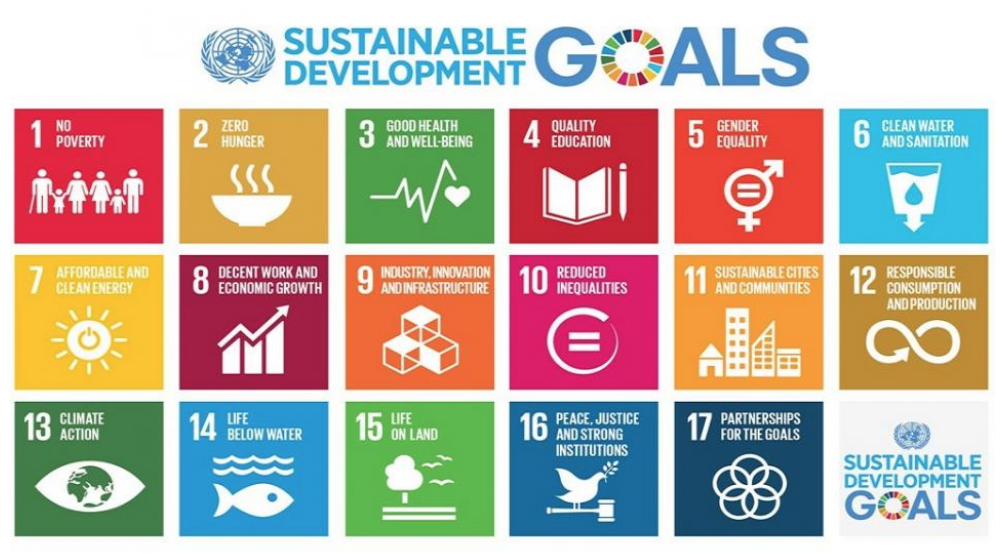The UN Sustainable Development Goals in the Greater Boston Area
September is Sustainable Development Month, a time when climate action and social impact are put into a global spotlight. As the UN General Assembly meetings and Climate Week sessions are getting underway this week, the UN Sustainable Development Goals will be at the forefront of the discussions as well as the progress each country is making towards achieving them.
The United Nations Sustainable Development Goals
The UN Sustainable Development Goals (also known as the Global Goals, or simply, the SDGs) are 17 interconnected goals with 169 associated targets for social, environmental and economic development that make up the 2030 Agenda for Sustainable Development, a 15 year plan aimed at creating a more equitable, green, and just world. They have been designed to gear their impact around the themes of people, planet, prosperity, peace and partnership and serve as a rallying cry for bringing governments, the private sector, and civil society together to achieve a common objective of improving the quality of life for global citizens, nature and Earth itself.
Adopted by the member nations of the United Nations in 2015, the SDGs are at the halfway point of its journey. While progress has been made, only 15% of the SDG targets are on track to meet their targets by 2030 and progress on 37% of them have stalled or have gone into reverse. These figures are drastic reminders that we need momentum to help put them back on track and to accelerate progress towards a better future.
With the SDGs at a critical juncture, what can we do at the local level here in Boston to help make progress at the global level?
The United Nations Association of Greater Boston has developed the SDG Action Corner to help track the Greater Boston Area’s progress on meeting the Sustainable Development Goals. It references the 2019 US Cities Sustainable Development Report, compiled and researched by the UN Sustainable Development Solutions Network (SDSN), which identifies how US cities are taking action relative to the 17 Goals. Although Boston ranked 8th among the top cities by population in the US and achieved 63% of its progress on the SDGs locally, it highlighted many areas where the city needs to improve. In particular, Boston must address targets related to gender equality (SDG 5), clean water and sanitation (SDG 6), and clean and affordable energy (SDG 7) as priorities for investment. While this benchmark has surely shifted in the last four years since 2019, it provides a helpful insight into the environmental and social conditions that the city has the opportunity to change.
Boston is also host to many environmental and social impact innovation platforms that can help source solutions for the SDGs. Solve MIT, for example, provides a marketplace for social entrepreneurs to connect startups with the funding and resources to solve a range of global challenges across climate, health, economic prosperity, and education.Through open innovation challenges, Solve leverages MIT’s innovation ecosystem to bring together tech-based social innovators and a community of supporters to fund and support them in driving inclusive, human-centered solutions for a lasting, transformational impact.
Another example of Boston’s global standing in raising solutions to accelerate the SDGs is convening several high-profile conferences. GreenFin convened an influential audience of finance, investment and sustainability professionals to share insights, address key challenges and showcase leading sustainable financial products and services for realizing a just transition to a decarbonized global economy. The Earthshot Prize, a global environmental prize founded by Prince William and the Royal Foundation to uncover and scale innovative solutions needed to repair the planet within the next ten years, also put Boston on the map with its awards ceremony in 2022 and showcased the city’s own ongoing transformation towards sustainability.
By focusing efforts on these areas, Boston can make significant progress on the SDGs both locally and globally. It will take collaboration between businesses, government agencies, nonprofit and community organizations and individuals in the Greater Boston area to pool resources, develop innovative financing solutions, form collaborative partnerships and drive equitable action to help make achieving the SDGs a reality.
Here are some Boston-based organizations and resources that can serve as key contributors to advancing the SDGs:
Boston City Departments
The Office of Black Male Advancement (SDGs 4, 8, 10 and 16)
Center for Working Families (SDGs 1 and 10)
Disabilities Commission (SDGs 3 and 10)
Boston Human Rights Commission (SDGs 10 and 16)
Boston Public Health Commission (SDG 3)
Equity and Inclusion Cabinet (SDGs 5, 10 and 16)
The Office of LGBTQ+ Advancement (SDGs 4, 5, 8, 10 and 16)
The Office of Economic Opportunity and Inclusion (SDGs 1 and 10)
The Office of Community Safety (SDG 16)
The Office of Diversity (SDGs 10 and 16)
Department of the Environment (SDGs 6, 7, 9, 11, 12, 13, 14 and 15)
Fair Housing and Equity Commission (SDGs 10 and 11)
The Office of Food Justice (SDGs 1, 2, 10 and 11)
The Office of Urban Agriculture (GrowBoston) (SDGs 1, 2, 10 and 11)
The Office of Labor Compliance and Worker Protection (SDGs 3, 8 and 10)
Department of Parks and Recreation (SDGs 11, 13, 14 and 15)
The Office of Police Accountability and Transparency (SDGs 10 and 16)
The Office of Immigrant Advancement (SDGs 1, 8, 10 and 16)
The Office of Women’s Advancement (SDGs 4, 5, 8, 10 and 16)
Worker Empowerment Cabinet (SDGs 3, 8, 10 and 16)
The Office of Youth Employment and Opportunity (SDGs 1, 8 and 10)
The Office of Youth Engagement and Advancement (SDGs 4, 5, 8, 10 and 16)

